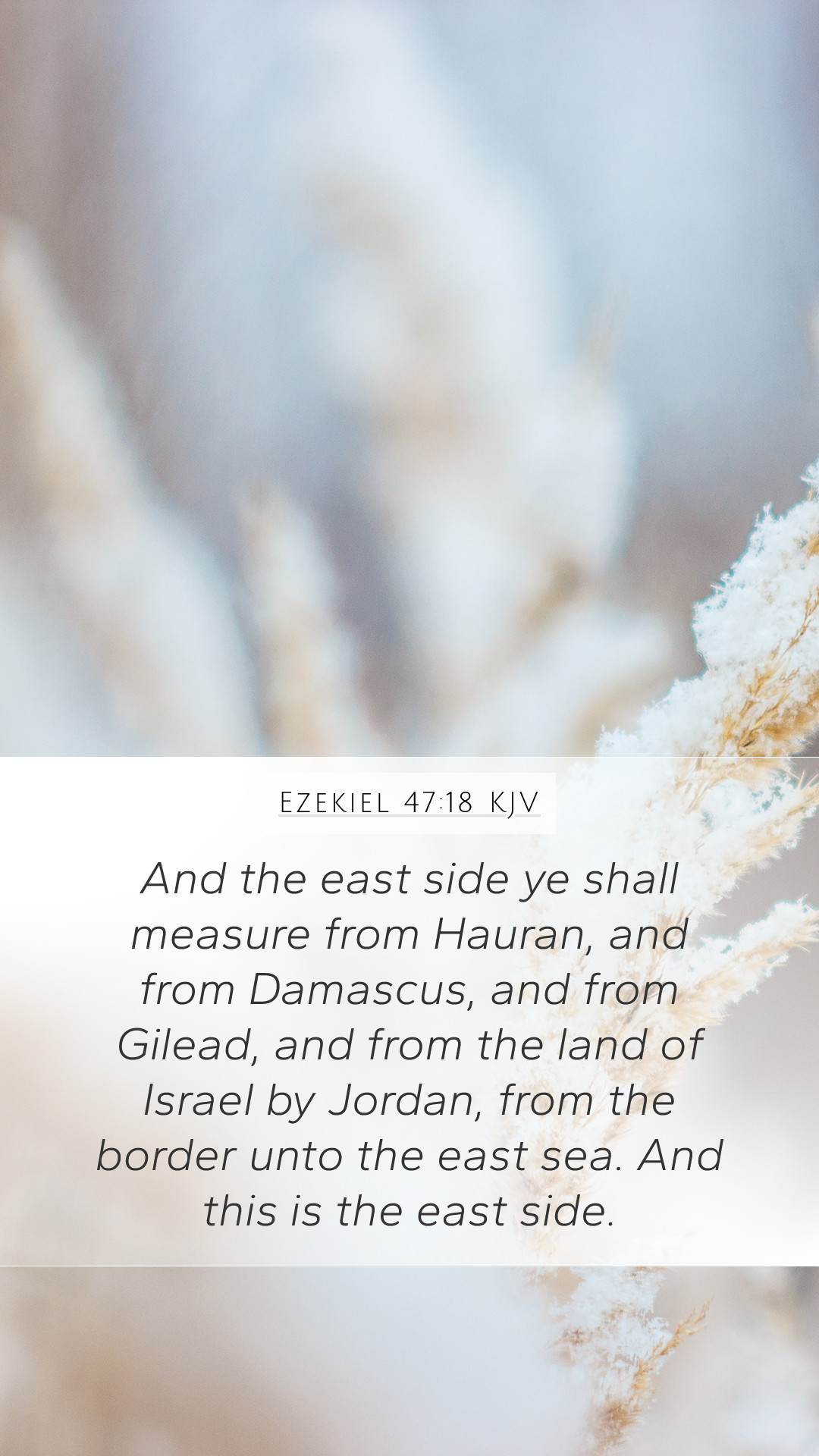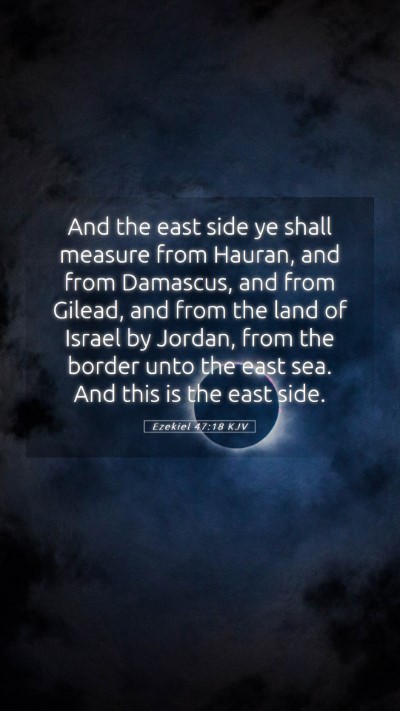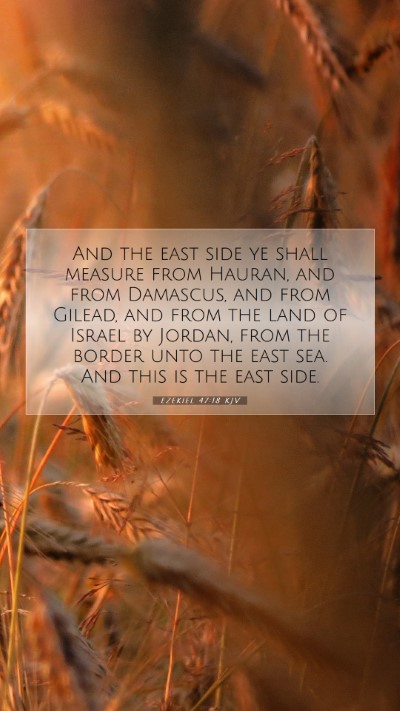Ezekiel 47:18 - Bible Verse Meaning and Explanation
Ezekiel 47:18 states: "And the border on the east side shall be from Haran, and from Damascus, and from Gilead, and from the land of Israel by Jordan, from the border unto the east sea." In order to achieve a comprehensive understanding of this verse, we will explore its meaning through various public domain commentaries including those by Matthew Henry, Albert Barnes, and Adam Clarke.
Contextual Background
This verse is situated within the prophetic vision given to Ezekiel concerning the future restoration of Israel and the re-distribution of the land. The boundaries are being delineated as part of God's promises to His people post-exile.
Verse Interpretations
- Matthew Henry's Commentary:
Henry observes that this passage reflects the restoration of God's people and how the land would be assigned to the tribes of Israel. He emphasizes the importance of geographical boundaries as a symbol of God's promise and faithfulness.
- Albert Barnes' Notes:
Barnes interprets the east border mentioned in this text as significant within the context of Israel's inheritance after the exile. He elaborates on the geographic elements and their meaning which convey not just physical territory but also spiritual implications of belonging and covenant.
- Adam Clarke's Commentary:
Clarke provides insights focusing on the historical relevance of these locations. He details the implications of the eastward border, suggesting that this corresponds with the areas of ancient kingdoms and utopian visions of restoration, showcasing God's meticulous providence in guiding His people.
Overall Significance of Ezekiel 47:18
This verse underscores several important themes in Scripture:
- God's Promise: The precise delineation of borders signifies God's ongoing commitment to Israel, a promise that resonates throughout the Scriptures.
- Restoration and Hope: It provides a vision of future restoration, a theme prevalent in prophetic literature, emphasizing that despite suffering and exile, God has a plan for His chosen people.
- Covenant Identity: The assignment of land is indicative of covenant identity, where land and people are intertwined in the biblical narrative, shaping their identity as God's chosen.
Practical Application
Understanding Ezekiel 47:18 also invites believers to consider how God's promises apply to their lives today:
- Faith in God's Plan: Just as Israel was reassured of their land, modern believers can find comfort in God's promises for their own lives.
- Identity and Belonging: Engaging with one's spiritual identity and understanding one’s place within the broader narrative of redemption can offer a deeper sense of belonging.
- Hope in Restoration: This passage can inspire hope, suggesting that even in desolation and exile, restoration is possible when aligned with God's will.
Related Bible Cross References
- Ezekiel 48:1-29: Further details about the borders and land assignments.
- Jeremiah 31:1-14: Prophetic promises of restoration to Israel.
- Zechariah 8:7-8: God's promise to return and dwell with His people.
Conclusion
In summary, Ezekiel 47:18 offers profound biblical insights into the significance of God’s promises, the notion of restoration, and the identity of His people.
For those engaged in Bible study groups or seeking online Bible study resources, this verse serves as a powerful reminder of God’s comprehensive plan throughout history and in each believer's life.


